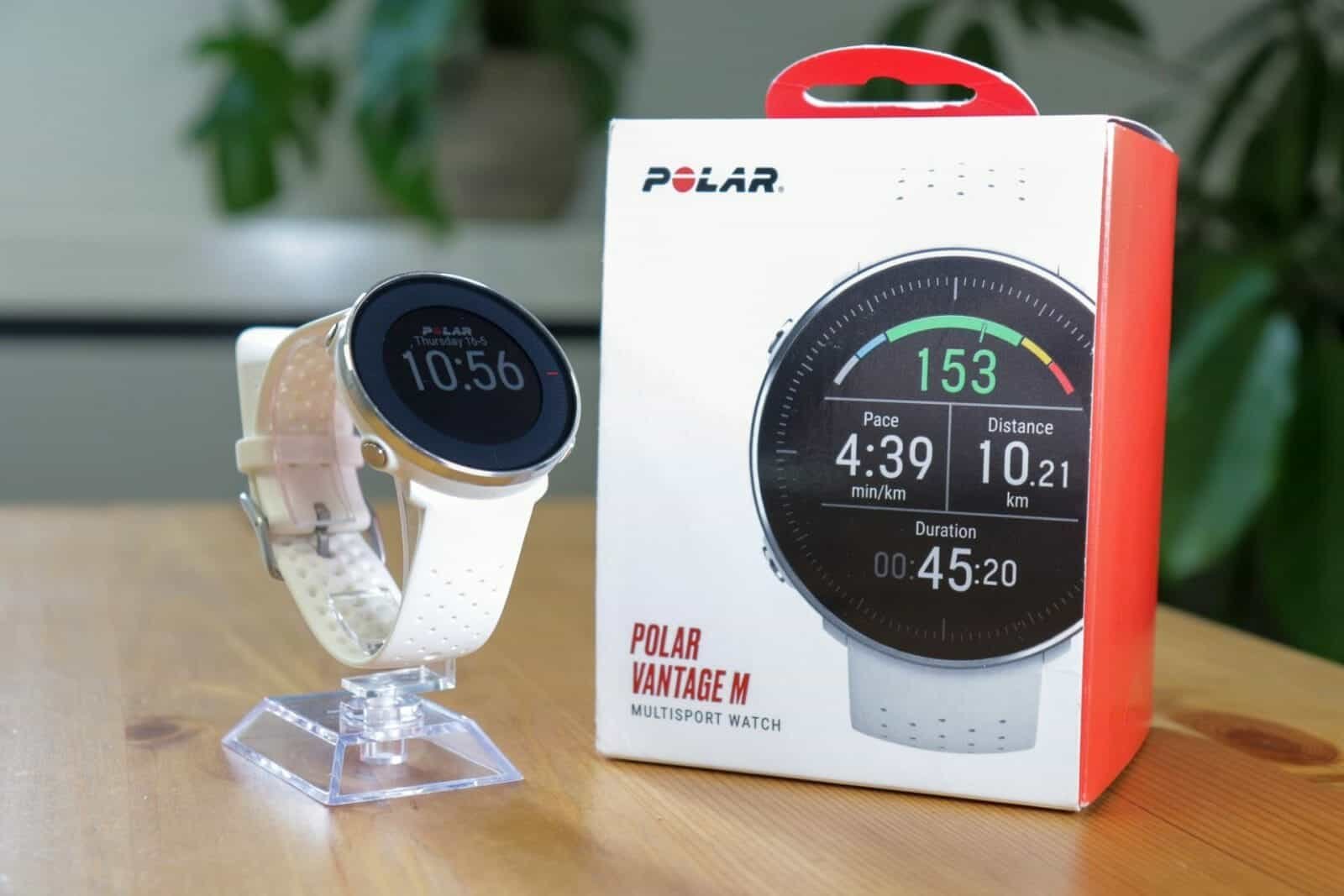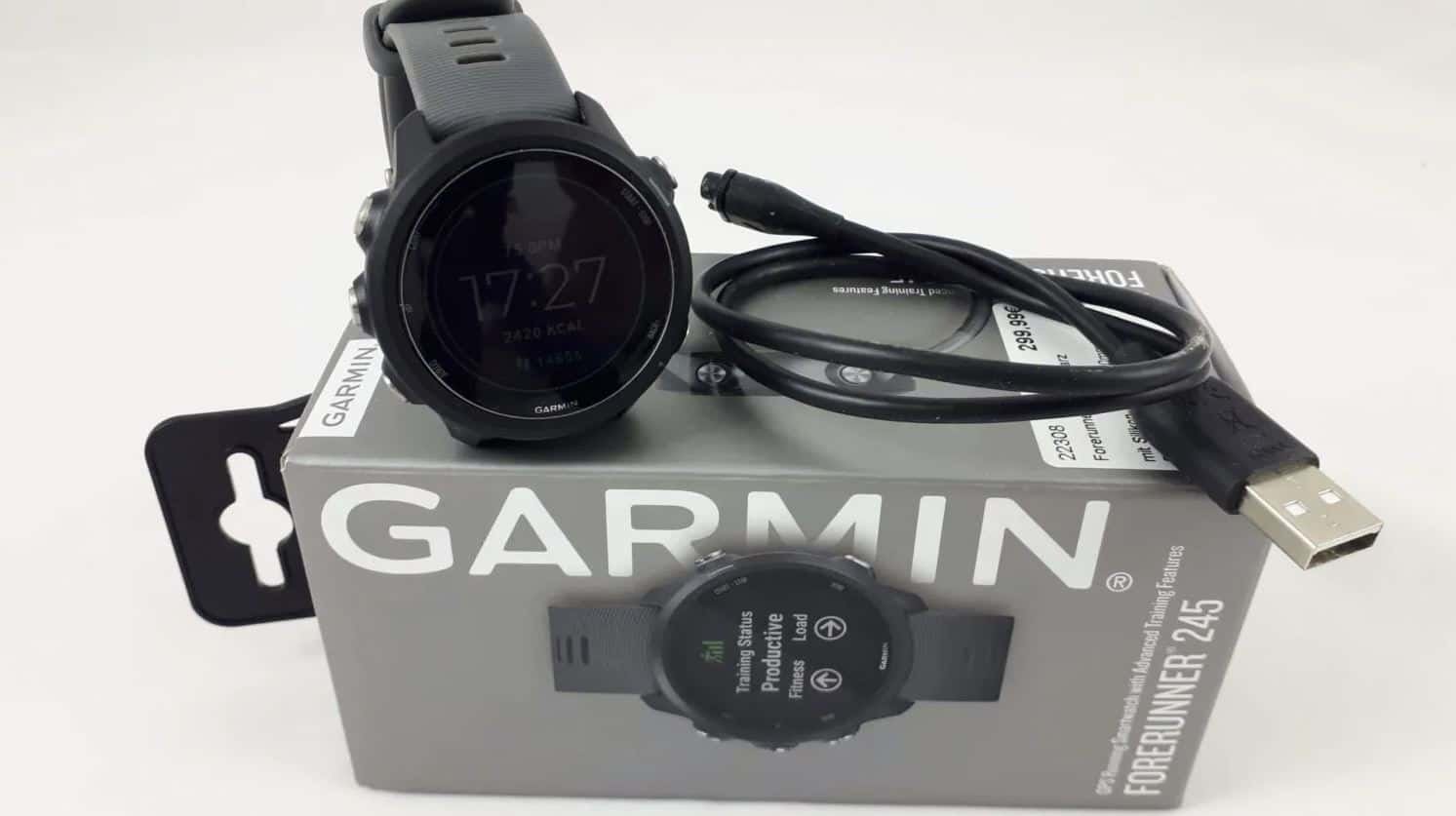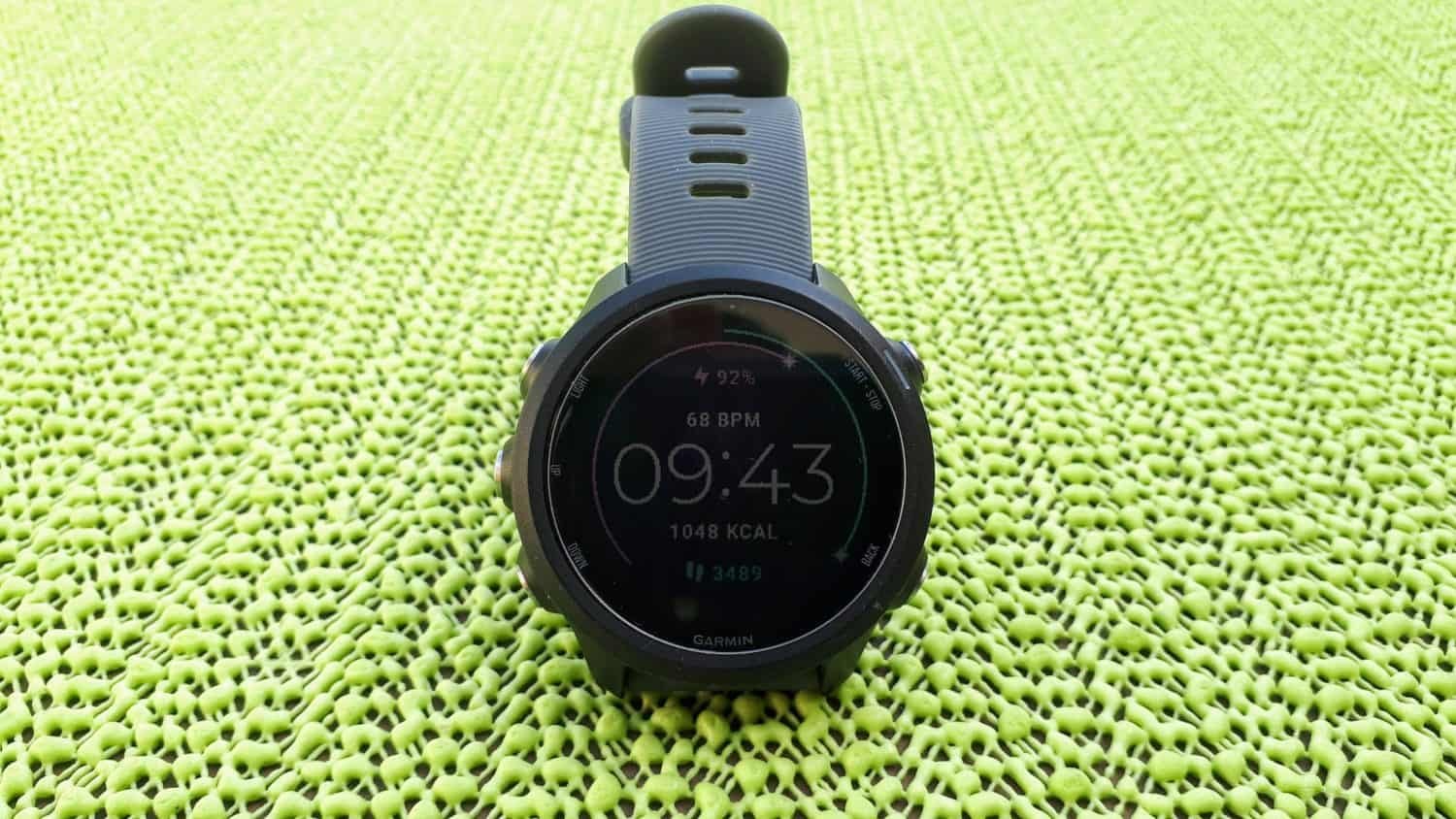The Polar Vantage M and the Garmin Forerunner 245 are currently among the best GPS running watches for motivated amateur athletes. Reason enough to subject the two sports watches to a detailed comparison.
While the Vantage has been available on the market since November 2018, sales of the FR 245 were only a few weeks ago. Nevertheless, I have already tested both watches and therefore it is obvious to compare the devices with each other to find out where the similarities and the differences lie.
Both models are primarily running watches that target the motivated hobby runner. For this purpose, the devices have been equipped with some exciting training and analysis functions that provide the user with informative data on the quality of the training and its benefits.
Although the focus is on running, both the Vantage and the Forerunner can be used to the full in numerous other sports.


General
| Polar Vantage M | Garmin Forerunner 245 | |
| $ | CHECK PRICE | CHECK PRICE |
| Brand | Polar | Garmin |
| Model | Vantage M | Forerunner 245 |
| Shape | Circular, Flat | Circular, Flat |
| Sensors | Accelerometer, barometer, thermometer | Accelerometer, Compass, Optical Heart Rate, Pulse Oximeter (Sp02) |
| OS | Windows XP or Later macOS 10.6 or Later | Android iOS |
| Display | AMOLED | Super AMOLED |
| Compatibility | Android, iOS | Android, iOS |
| Colors | Black White Red | Black, white, gray, dark blue, aqumarin |




The Polar watch is slightly larger and heavier than the Garmin, although the weight difference of around 7 grams is hardly noticeable. Although the Garmin is only 4 mm smaller in diameter, this makes the watch much more compact. Women with slender wrists, in particular, are therefore better advised to use the Forerunner than the Polar.
Technical Specifications
| Polar Vantage M | Garmin Forerunner 245 | |
| Display Resolution | 240 x 240 Pixels | 240 x 240 Pixels |
| Dimension | 46 x 46 x 12.5 mm | 42.3 x 42.3 x 12.5 mm |
| Weight | 45 grams | 38 grams |
| Touchscreen | Yes | Yes |
| Water Resistant | 98.43′ / 30 m | 164.04′ / 50 m |
| Water Resistance Depth | 5ATM | 5ATM |
Activity Monitoring
| Polar Vantage M | Garmin Forerunner 245 | |
| Pedometer | Yes | Yes |
| Calories Count | Yes | Yes |
| Heart Rate Monitor | Yes | Yes |
| Compass | Yes | No |
| Calendar | Yes | Yes |
| Alarm Clock | Yes | Yes |
| Chronograph | Yes | Yes |
| Date & Time Display | Yes | Yes |
| Language | English | English |
| Sleep Tracking | Yes | Yes |
Of course, both watches can not only be used during sports and training, but also monitor all of your activities during the day.
The basics such as permanent pulse measurement, step counter including distance covered, calorie consumption, and sleep monitoring can be found on both devices. The difference can be found in the additional features.
Polar is rather cautious when it comes to activity tracking and offers an additional exciting function with Activity Benefit, through which you receive regular, scientifically based feedback on your activity level.
Garmin is much more generous in this regard. The Forerunner 245 has automatic activity detection, records your intensity minutes, and provides interesting insights with Sports Age, Stress Tracking, and Body Battery.
Your current fitness level is calculated with the sport age function based on various biometric data, heart rate, and VO2max. With the help of stress tracking, you can find out which external factors put you under stress, and the Body Battery tells you how your personal energy reserves are doing.
The presentation of the various activity data in the two apps is also different . While Polar shows the most important information clearly and concisely on one page, Garmin provides a brief overview of the various values. If you would like to know more about this, click on the individual areas and you will receive detailed diagrams and data as additional information.
Whether the Polar Vantage M or the Garmin Forerunner 245 does the better job in terms of activity tracking is very difficult to answer.
For some users, and I am one of them, the daily activity data such as the number of steps or sleep duration are only of secondary importance and therefore a brief overview as Polar does it is completely sufficient. Other users, on the other hand, are very interested in more in-depth information on daily activity levels, which is why Garmin is exactly the right choice with its well-made diagrams and detailed data.
Now we come to the heart of both watches, the sports, training and analysis functions . Here the models offer a wide range of different features that help you analyze your training precisely and then make it more efficient.
Connectivity Features
| Polar Vantage M | Garmin Forerunner 245 | |
| Bluetooth | Yes,v4.1 | Yes,v4.1 |
| GPS | GPS, GLONASS | GPS, GLONASS, Galileo |
| Battery | 30 hours of training time | 24 hours of training time |
| Charging port | Proprietary charging cable | Proprietary charging cable |
In addition to the usual heart rate functions, interval training, and various training programs, both devices offer features for determining and analyzing the training load.
However, the two manufacturers are pursuing different approaches.
Polar determines the training impulse (TRIMP) and the muscular load and takes your personal assessment of the training intensity. In addition, performance values such as heart rate, VO2max, training duration, and various of your biometric data are also taken into account. The current training load and your training status are derived from the collected data using the Training Load Pro and Cardio Load functions.
Garmin offers similar functions with training load, training status, and training effect developed in cooperation with Firstbeat, the leading manufacturer in sports analysis. Performance values such as EPOC (“Excess post-exercise oxygen consumption”), VO2max, heart rate, training duration, speed, and personal biometric data also play a major role.
Although the two devices use different scientifically based methods to determine the training load, the results are very informative, meaningful, and useful.
Both the Polar Vantage M and the Garmin Forerunner 245 give you feedback right after each training session.
- How high the training load was
- How the training had affected your current form, e.g., building up, maintaining, under-challenged, etc.
- What benefit the training had – for example, whether it strengthened your cardiovascular system, improved your endurance or performance, or whether the training promoted your recovery.
- How other important performance metrics, e.g., B. the VO2max changed.
With this information, you can organize your training efficiently and purposefully without overwhelming yourself and exposing yourself to an increased risk of injury.
In terms of battery life, however, the Vantage is clearly ahead. I used both devices similarly –
- every other day 1 hour running with activated HR and GPS
- Worn 24/7 with permanent HF measurement (even when sleeping)
- up to 20 notifications per day
and the Polar watch lasted an average of 6 days, but the Garmin watch only lasted 4 days.
Smart functions
As far as the smart features are concerned, there is no need for comparison, in my opinion, as the Garmin Forerunner 245 is far superior to the Polar Vantage M.
This is mainly due to Connect IQ, the manufacturer’s own app store, in which countless display design templates, widgets, and third-party apps are available for download. This allows you to customize your Forerunner on the one hand and install additional functions on the other.
In addition to the usual smart notifications, the model also has an integrated music player, including memory on board. This allows you to save your favorite songs directly on the watch or listen to various playlists directly via Spotify.
In comparison, it takes around two months after market launch for notifications of incoming calls and messages to be available on the Vantage M. Since then; not much has changed in terms of smart features.
Conclusion
The Garmin Forerunner 245 is the winner in direct comparison, albeit by a narrow margin. Why is that?
The Forerunner is a bit more compact and lighter than the Vantage, making it more comfortable to wear. Even if the battery doesn’t last that long, an average runtime of 4 days is absolutely sufficient for me and, therefore, no reason to reject the Garmin watch.
The Forerunner delivers the better package for me regarding activity tracking, training recording, and analysis. However, it’s all about details.
The FR 245 offers additional features such as sports age, stress tracking, or body battery. These functions are just nice gimmicks for many users, but they bring you interesting insights into the daily activity level.
The Forerunner also convinced me more when it came to the sport functions, whereby it was about the much clearer and graphically very appealing presentation of the various performance data.
As far as the smart functions are concerned, there is no need for any comment.
Overall, the Polar Vantage M and the Garmin Forerunner 245 are excellent sports watches for motivated hobby athletes, which we recommend both unreservedly. Even if the FR 245 appeals to us a little more and convinces us, that is a very subjective decision.


